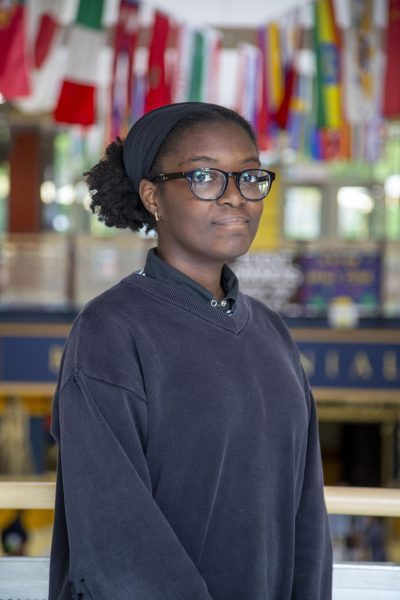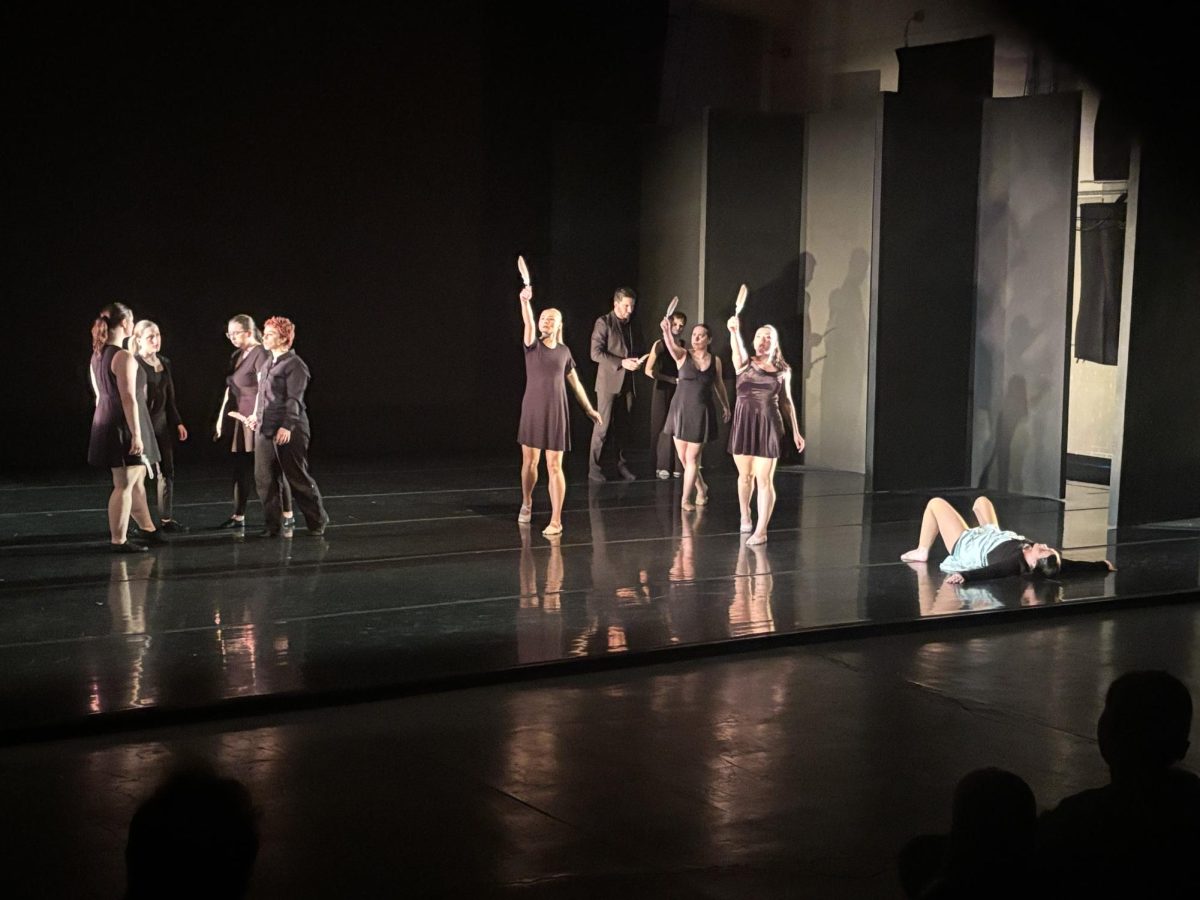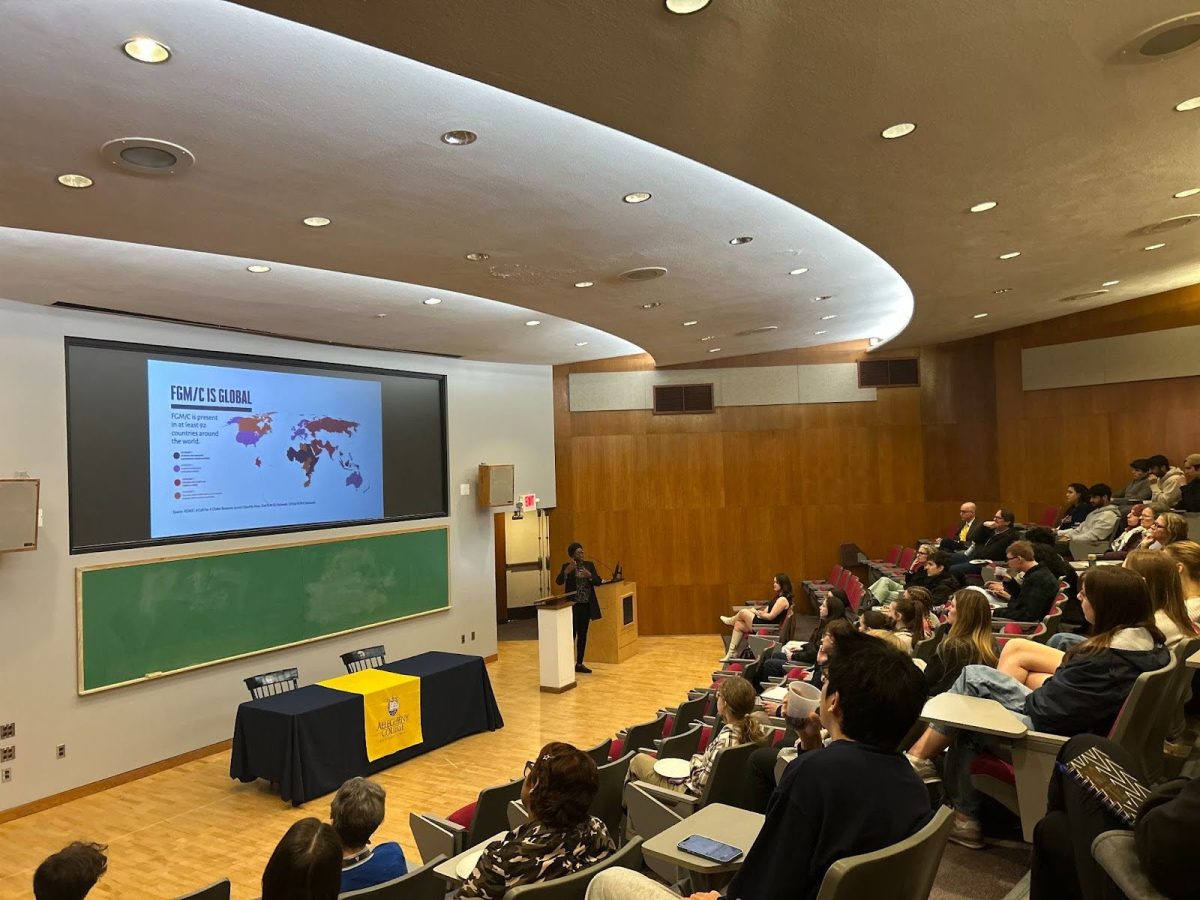With tools such as ChatGPT and Grammarly, generative AI has never been so easy to use. Simply entering prompts can produce paragraphs or entire essays in just a few seconds. Large language models, or generative language models trained on massive amounts of pre-existing text, are expected to grow in usage and become implemented in more everyday uses in the near future. However, what happens when these uses stretch into the academic sphere? Where does this leave students, faculty and staff working in fields where authentic writing is prioritized? If these tools borrow from pre-existing work, how much does generative AI border on plagiarizing? These burgeoning questions will find their answers in the coming years, but three faculty members shared their current thoughts on these tools with The Campus.
Professor of English and Director of Writing Alexis Hart previously wrote a piece for The Campus concerning the humanities and generative AI. In an interview, she expressed optimism, hoping students understand how to safely utilize AI in their own writing. To be a conscious user of these tools, Hart recommends realizing that they’re limited in their output as a result of their lack of lived experience.
“I think that the reality is that when students leave campus, they’re going to be asked to use generative AI,” Hart said. “So, my attitude is that I would like them to be able to leave our campus as critical users and being aware of the benefits and detriments of using AI to generate texts and other kinds of communication.”
Hart compared tools like ChatGPT to Wikipedia in its infancy, as both tools should be referred to as general reference sources. To rely on ChatGPT for all academic thinking and communication doesn’t advance the user’s writing or analytical capabilities when engaging in research.
“You can’t stop at Wikipedia. Similarly you can’t stop at generative AI,” Hart said. “You’ve got to take the time to get in and wrestle with it and then think about producing your own language to engage with it.”
Department Chair and Frederick F. Steely Associate Professor of English Jennie Votava also spoke to the relevance of the tool, but voiced concerns about what creative processes might look like when it comes to generative AI.
”Obviously, English professors on both sides of the equation have a lot of concerns about questions of plagiarism,” Votava said. “Any branch of the college where students are doing writing, that should be their own personal writing.”
Votava has also done research on prompt engineering in preparation for her Literature and the Mind course being offered this semester. The course includes analyzing literature and how artificial intelligence is represented in literature, so she plans to help students productively use AI and recognize its limitations.Votava stresses that the tool cannot take the place of a student’s creative voice, which is noticeable in the repetitive nature of the predictive text.
“If you tell students don’t use it at all, that seems like nonsense,” Votava said. “But, if you say, here are some ways you can use it potentially to do good things and here are places where I don’t want you to use it, maybe that’s more productive.”
One useful way she recommends to use ChatGPT is to paraphrase difficult-to-understand texts, then comparing the result to your own interpretations to further develop your analytical skills. In addition, using tools such as Grammarly to check spelling and grammar in student writing should be employed strategically.
“I always have them tell ChatGPT ‘Don’t analyze it,’ because if you give ChatGPT a passage to paraphrase it will also start to analyze it and will do a really bad job,” Votava said. “Sort of find ways to, strategically and very limited ways, that ChatGPT can boost student writing that don’t detract from the writing process.”
Entrepreneur in Residence and the Co-Director of the Bruce R. Thompson Center For Business & Economics Chris Allison, ’83, also weighed in on the conversation. He agreed that students should become proficient in using tools like ChapGPT while not completely replacing all creative input they may have. He raised the concern of hallucinations, or false citations that ChatGPT creates when looking for citations.
“Our attitude in our department is if you’re gonna use it, you’ve got to tell us,” Allison said. “So, in my classes, that’s what I tell them — if you’re using it, just let me know. When Google came out, we would say you could only use the library. It’s a tool.”
Allison, who was CEO of Tollgrade Communications Inc. for nine years, said he had been utilizing artificial intelligence since the 1990s. He understood the significance of machine learning, but is also cautious about what specifically the tools are being used for.
“The thing we all have to worry about is that people are using these for bad purposes. You’ve got people that are using AI-generated voices and committing fraud, catfishing people,” Allison said. “There’s a saying that locks are for honest people. If someone has to abuse a piece of technology, they’re going to be able to abuse that piece of technology.”
In the future, faculty are hopeful that rules and regulations can be formulated with nuance and understanding. The rules concerning generative AI could be most successful when decided upon by individual professors, taking into account their different concentrations and how the tools could aid students.
“I think we really need more dialogue so that the professors really know what their students are doing,” Votava said. “I think that one way to achieve that is to do what I’m trying to do this semester – is have a really clear generative AI policy. Where one of the stipulations of the policy is if students want to use generative AI, come chat with me and let’s decide what’s appropriate and not appropriate.”
Categories:
Generative AI and the future of academia
Story continues below advertisement
0
More to Discover
About the Contributor

Paige Kageni, Staff Writer
Paige Kageni is a sophomore from the Central Pennsylvania area. She is planning to major in English and minor in Communications and Women’s, Gender, and Sexuality Studies. This is her second year as a staff writer for The Campus. In her spare time, she enjoys playing guitar, crocheting, and going on long walks.






